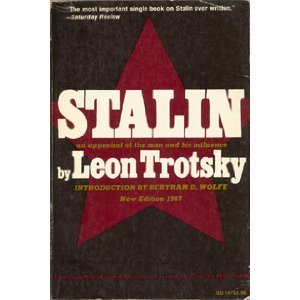What do you think?
Rate this book


1282 pages, Paperback
First published January 1, 1941
“(Stalin) Parece no tener prehistoria. El proceso de su elevación transcurrió en alguna parte, tras una cortina política impenetrable. En un determinado momento su figura, en pleno atuendo de poder, se destacó súbitamente de la pared del Kremlin, y por primera vez el mundo se dio cuenta de Stalin como dictador ya hecho así.”